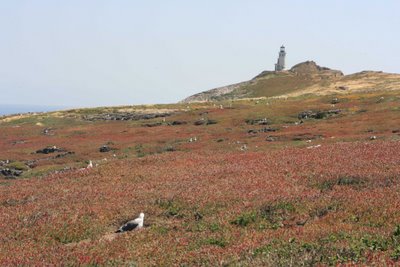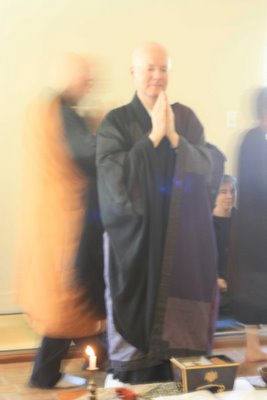
I put on my biographer’s boots today, and they took me north of London to
Rushden. Random House has its
library and archive there. I expected some discreet door into an anonymous building but in fact the Random House name is emblazoned on a large warehouse that dominates a roundabout.
My welcome from Jean Rose, the archivist, was jolly. I had a well-lit room to myself, a photocopier and plate of biscuits, and hot tea flowed through the whole visit. The files I was looking for were all to hand.
This particular quest is for information on the novelist Walter Baxter. His first novel
Look Down in Mercy is regarded as one of the classic books of the Second World War. His second,
The Image and the Search, was his last. He and his publisher
A.S.Frere were arrested on the criminal charge of obscene libel and tried three times at the Old Bailey. As juries could not agree on a verdict the pair were found not guilty, but the affair was so bruising it knocked all the heart out of Baxter’s attempts to continue his writing career.
I love picking through files to unearth treasures. Today held plenty. Baxter was published in the UK by Heinemann, whose archives are still 90% intact. I read the correspondence between Walter Baxter and his publisher, … and then letters neither would have wished the other to see.
E.M.Forster was an early supporter of the novel, and I’ve been touched before to read how Walter Baxter was prepared to save him from a court appearance even if it meant prison. Now I learn that Forster in fact withdrew his support as the book came to trial, swung by negative reviews and opinions of his friends. Graham Greene, swinging the Catholic Church in to support Baxter, termed Forster a rat.
Here’s a letter from W.S.Maugham; a series from H.E.Bates; another from
Georgette Heyer. A.S.Frere’s authors and other publishers seemed to be rallying round. But read further, and you learnt that Frere felt almost everyone had let him down.
I’ve been building up my Walter Baxter file for a couple of years now. I work this way with subjects till the material reaches critical mass and I have the chance to shape something from it. My Walter Baxter story is shimmering into shape. An early outing for it comes in July, when I’m invited to give a paper at Bristol University (where the surviving Penguin Archives are held) at
a conference on the
Lady Chatterley Trial – Baxter’s trial serving as for early comparison.
Meanwhile I’m learning to think more kindly of Random House. I’ve viewed them as a conglomerate till now (the one time they’ve published me, in New York, my new publisher denied all existence of my book till I guided her to the relevant page in her current publishing catalogue). Now I’m told that ln Britain the group retains a family feel, and numbers not much more than 200 staff. They’ve bought up imprints, but unlike other houses (Penguin sold 60% of its archives to collectors in America) they show real care for their library and archives.
My own writing has involved me in severe legal tangles so I find myself sympathetic to Baxter as he fought the lone writer’s battle for the integrity of his books. I had sympathy for the publisher too though, cast into cells as a criminal on behalf of a book he was publishing because he wanted to support the writer’s career even though he had strong misgivings about its relative quality. I came away with a sense of writing, and writers, being valued even as they were under attack.
Labels: Walter Baxter; image and the search













